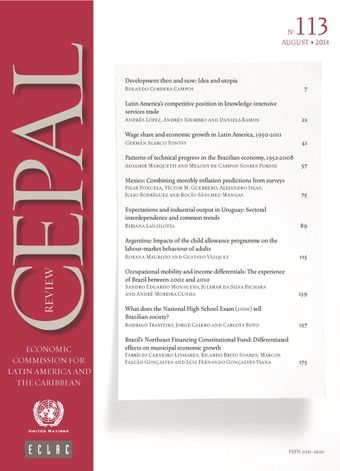-
Development then and now: Idea and utopia
- Source: CEPAL Review, Volume 2014, Issue 113, Dec 2014, p. 7 - 20
- Spanish
-
- 31 Dec 2014
- Previous Article
- Table of Contents
- Next Article
Abstract
The crisis of globalization has given renewed topicality to the idea of development as a complex process involving social and institutional changes as well as a variety of democratic learning processes. Placed at the margin of the international academic and political debate, the political economy of development can come back into its own if academics and politicians responsible for the economy are forced to think for the long term. The political economy of development needs to be twinned with politics so that what we understand by the general interest can be reconfigured in pursuit of freedom, justice and democracy. These can be the keys to turning globalization, whose essence is openness and interdependence, into an active agent in the development of national density, something that is indispensable if we are to think critically about reality and, as Prebisch taught and practised, set history on a future-creating course.
© United Nations





